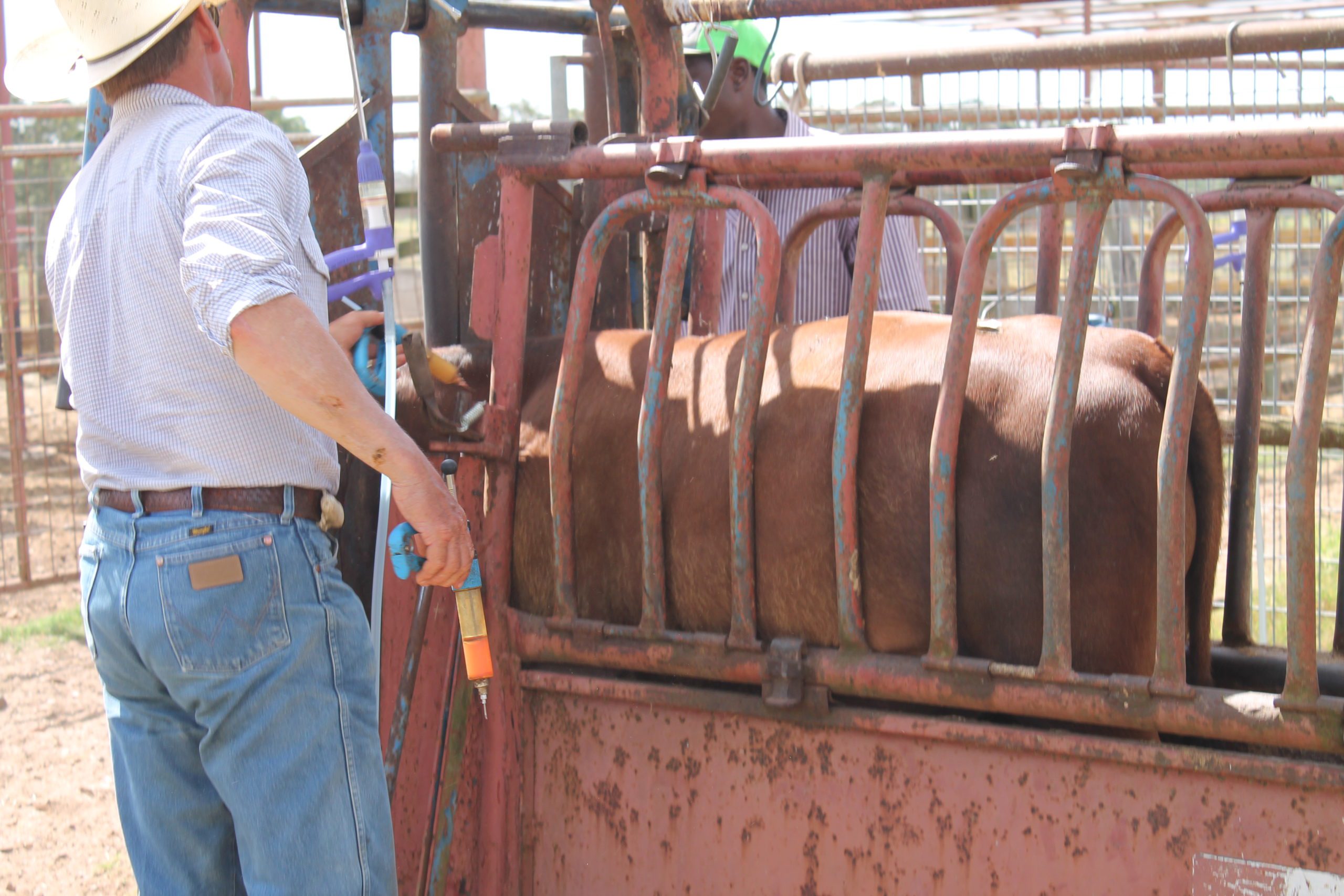
IBR Vaccinations: What, Why and When

Few diseases can cause such a large amount of damage to the cattle herd as Infectious Bovine Rhinotracheitis (IBR). It is particularly problematic when cattle are living in close quarters, such as feedlots or dairies. Its ability to spread rapidly and cause significant disease makes it one of the most serious illnesses amongst cattle.
What is IBR?
Infectious Bovine Rhinotracheitis is caused by the Bovine Herpes Virus type 1 (also known as BHV-1). This virus is highly contagious and impacts the respiratory and reproductive systems in cattle. It is spread through the secretions of infected animals – saliva, nasal and ocular discharges being the main culprits. While it can infect animals of any age, calves are highly susceptible, due to their tendency to lick many surfaces and one another’s hair coats.
IBR is one of the leading causes of pneumonia in cattle and can cause significant reproductive issues, including spontaneous abortion of calves and infertility.
Symptoms of IBR
IBR is an acute disease, meaning it will come on suddenly. Some of the most common symptoms seen with IBR include:
- Fever
- Decreased appetite
- Salivation
- Red nose with abundant mucus
- Watery eyes
- Difficulty breathing
Treatment for IBR
There is currently no cure for IBR; the best course of action, if this disease is detected in your herd, is to separate all sick animals and provide supportive care. It’s essential that they continue to eat and drink adequately during this time period. If they are not consuming enough feed and water, their rumens will be overburdened with excess acid, which can lead to a whole new set of problems. Antibiotics are often recommended to help avoid secondary bacterial infections that can develop alongside viral infections.
Vaccinating for IBR
As with any vaccine, the goal is the prevention of serious infection. While cattle can still contract IBR when vaccinated, the vaccine lessens the severity of the disease and gives the immune system the ability to recognize and start fighting it. Antibody development and disease resistance from IBR vaccines will depend on how strong the immune system was at the time of vaccination. For instance, a stressed or depleted animal will not have a very good immune response to the vaccine. This is because cortisol (the primary stress hormone) suppresses the immune system’s ability to recognize and attack potential threats.
Depending on the age and sex of cattle, modified live IBR vaccines may not be appropriate for calves that are still nursing. This is due to the possibility of the calf shedding the virus and infecting the pregnant cow, which can in turn cause birth defects or spontaneous abortion. Your herd vet can advise you in a good vaccine program that will take into account many factors, including the ages and timing to ensure the best outcome possible.
